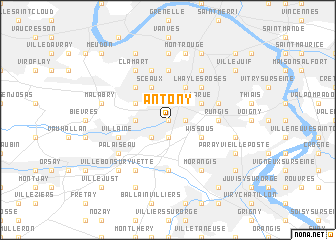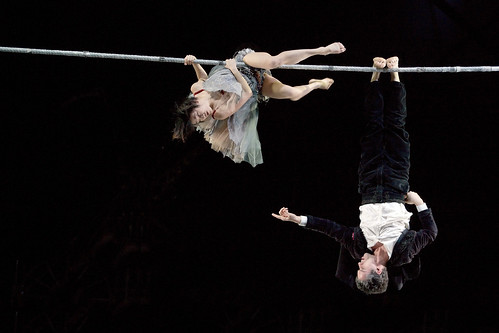I got up today and took a risk by not telling a story, but by pitching an idea for a show:
It's commonly known that Captain Cook was captured, killed, and eaten in Hawaii. And this is the end of his story. But this is false. A conspiracy theory. He wasn't killed and eaten. He actually escaped...and this is the story of his escape...
I don't feel like I have stories from my life that are particularly interesting to make a play out of. I lack major dramas or tragedy in my life. Which I'm thankful for! (But as Andre kindly says: 'You're time will come.') So I tried to offer a fictional story.
This was a bit against the grain of how the direction of the workshop seems to be going (i.e. tell stories from your life), but I said I don't want to tell stories from my life, to which Philippe replied: "Not your life, but your dream."
He then asked me lots of questions to try and get underneath my idea, and to something with substance. Why is this story/subject important to me?
He asked me why I'm interested by Captain Cook, and I said I've been always found the idea of being an explorer incredibly exciting. For me, space travel and the mapping of the universe, finding new lands and new alien civilisations, is my discovery dream. My dream to be an explorer is one link to Cook.

But this wasn't enough to drive the writing of a play. "We need something else."
He also asked me what my parents do. I said my Dad's a designer, and my Mum was a contemporary dancer and then a dance teacher - to which Philippe took great delight from - and then told me that that explains my horrible dancing!
He asked about how big-a-deal Captain Cook is in New Zealand. I said he's a big part of our history. And he asked how old we are when we first learn about him. I guessed about 5.
He eventually asked what my mother would have told me when I was a kid and asked why we (the English/white people) stole land from Māori. I said I think she would have said it wasn't us - it was people from a different time in a totally different situation - and they did what they did for their own reasons. Something like that. Vanessa said that her mother would have told her the Māori's should get over it "because we have them cars and computers". This kind of argument gets me fuming! But anyway. We got to a point.
We got to the point that I feel a lot of guilt, anger, and shame from what my English ancestors did to the Māori in Aotearoa. That in a way I feel ashamed to be a Pākehā.
"This is a very good subject."
I said this is a subject I don't think has been expressed much in theatre in NZ (although I don't really know this), or at least from a voice from my generation.
"At first we need the subject we need to fight."
I said I want to make a work that questions this feeling, and for it to be done with humour and fantasy. Philippe said to this: "Everybody has their own way" to tell stories.
So some good learning today. I need something to drive an idea. Something I care about. I need to ask: Why do I want to tell this story? Why is it important to me?
I'm still left with the question of what actually happens in my play - and a lot of discussion came up around the purpose for changing history. I have my reasons (such as: a remove from the 'truth' gives me a lot of freedom) but the question What could be a worse way to die than being eaten? is a good point. But Philippe talked about writers like Jules Verne, who created fantastic imaginary worlds, suggesting that as a writer you can have a lot of fun with fiction.
So that was really useful. Now to do something...hmmm...
I love this image - from James Thiérrée's Raoul. It's very much in the aesthetic of what I want my Captain Cook show to be like.
~
Christine also told a story from her life. "Until 18 years old - my life was a lie." Set in Antony.
It was a great story, very connected to her, but it needs an ending...which is really hard when you're still living your story!
~
Philippe said we'll also be working on already written texts in this workshop. Such as Samuel Beckett's Endgame.
They're in a bin because they fell off their bikes and cut off their knees. It's practical! "They are not in a bin because Beckett thinks humanity is in a bin." This is an academic explanation that is completely wrong. Philippe knew Beckett. And he said he was a nice boy. An alcoholic, but a nice boy. "An alcoholic is always a nice boy."
& Waiting For Godot.

"If you go to Dublin you see Beckett everywhere - the characters of Beckett...And they are drunk...They sing...They are beautiful."
& Marivaux's Le Jeu De L'Amour Et Du Hasard.
~
Tonight I saw Au Revoir Parapluie by James Thiérrée (Charlie Chaplin's grandson) at Théâtre Marigny.
It was superb!
Beautiful images.
Great circus-y stunts.
Genuine play.
Fantastic Chaplin-esque physical gags - like the jacket that just won't fit right (every he thinks it's good, something else wrong pops up, and when he fixes it, the error before that one comes back again).
Really strong ensemble too. I loved them all. Except one - who just didn't seem to be as memorable as the rest.
Something really special. Full of life and fun. I feel so lucky to be seeing shows like this! And for only €15! WOW. Highly highly recommended.










No comments:
Post a Comment